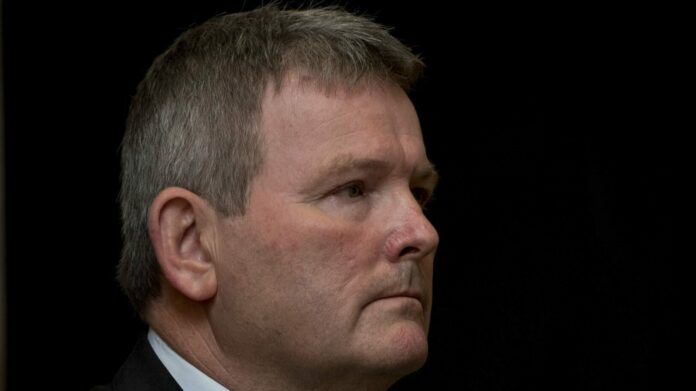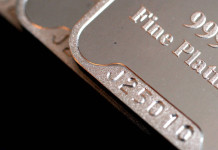
CEOs at S&P 500 companies stay in their jobs for an average of seven years, the Harvard Business Review says. It’s shorter than that in South Africa. According to PwC’s Executive Directors 2022 report, CEOs in the “basic materials” segment stay in charge for about six years on average.
Then there are CEOs who hazard company-changing transactions, and fail. Chris Griffith, former CEO of Gold Fields, didn’t last two years in his role after the company was outbid for Canadian miner Yamana Gold. And despite catapulting Harmony into the world’s top 10 gold miners, Bernard Swanepoel left after failing to buy Gold Fields.
Quo vadis Paul Dunne at Northam Platinum?
On July 13 Northam announced the sale of its 34.5% in Royal Bafokeng Platinum (RBPlat) to Impala Platinum (Implats), its rival for RBPlat, for R13.1bn in cash and Implats shares. After his claim to be happy with a minority stake in RBPlat, Dunne’s sale suggests shareholder pressure was at play. Adding insult to injury, the sale is at a R4bn loss, including fees and after accounting for about a year of dividend flow from RBPlat. The question is whether shareholder pressure will stop there.
“Questions will definitely be asked,” an analyst said. Shareholders may reflect, for instance, that Dunne diluted their holdings in using 34.4-million Northam shares to buy the Royal Bafokeng Holdings (RBH) stake in RBPlat. And while biding his time before rivalling Implats’s offer for RBPlat, Dunne sanctioned additional debt to bolster Northam’s balance sheet.
Shareholders might well consider this, but according to Standard Bank Securities analyst Adrian Hammond, they will also be focused on future events. Northam’s R12.5bn net debt might be just about wiped out with the R9bn sale proceeds it receives from Implats. So the hope is that a reasonable portion is paid out in cash.
“While investors appear satisfied with the outcome … they will likely expect to see a new solid capital allocation strategy that we hope includes a maiden dividend policy,” said Hammond. “Delivery of these key issues, in addition to a solid growth outlook and relative standing to peers on the cost curve, should all bode well for a premium company rating.”
In fact, Northam is one of the very few platinum group metals (PGM) companies in South Africa with a growth profile. It expects to produce one million ounces of refined metal for its 2024 financial year, having already produced a fifth higher production for the 2023 financial year ended June. (Tharisa is the other company with production growth).
However, this growth has come at the expense of dividends over the years. “It was the only PGM company during the entire bull run in metal prices that didn’t pay a single cash dividend,” said Arnold van Graan, an analyst for Nedbank Securities.
One thing investors may be reluctant to see is another economic empowerment transaction. Dunne told Miningmx last year “it is the right thing to do” on being asked why such a deal figured in his thinking, considering the company is already BEE compliant in terms of the mining charter. “I can’t see that being popular,” said Van Graan.
The BEE deal is one of several other key questions, including “whether Northam sells its shares in Impala [and] whether it buys back the shares it issued to RBH”, said Hammond. Were it to sell the Implats shares for par value it would be R3.5bn cash positive, according to Steven Friedman, an analyst for UBS.
Quo vadis SA PGM stocks?
One also should take seriously Dunne’s comment that PGM markets are deteriorating, possibly severely. “I don’t think people realise the extent of it,” Dunne said. For this reason, he doesn’t expect Northam will look to resume a mergers & acquisitions growth strategy, despite speculation that Anglo American Platinum might be selling its underperforming Amandelbult division, which it can’t seem to tame. Said Dunne: “You’ll find all companies will be cautious, given the current market conditions.”
The PGM rand basket price is now down about 35% since the beginning of the year. Dunne says this kind of market puts too much pressure on short-term cash flow. One question worth asking, however, is whether Dunne is selling the RBPlat stake at the bottom of the cycle.
Citi analyst Ephrem Ravi said there may be further price weakness to come owing to the deteriorating outlook of medium- to long-term PGM demand. The effect on profits is telling. Citi has forecast Implats’s earnings before interest, tax, depreciation and amortisation (ebitda) to be respectively 2% and 19% lower for the 2023 and 2024 financial years, based on spot prices. Expectation for Amplats’s Ebitda has been reduced 31% and 18% for the same years. The rand basket price may fall further while the risk of US recession remains high.
There is hope, however. Wilma Swarts, head of PGM analysis at Metals Focus, a UK-based precious metals consultancy, believes the PGM price correction has been overdone. “Improvement in vehicle production and some recovery in the Chinese economy in the latter part of this year will likely lift the prices of all three metals, provided we do not see a further metal inventory correction,” she said in an interview.
“We should also remember that platinum is enjoying a further boost due to the substitution of palladium by platinum in gasoline catalysis,” Swarts said. “What is more, platinum is enjoying support from the modest recovery in gold price.”
This article first appeared in the Financial Mail.










